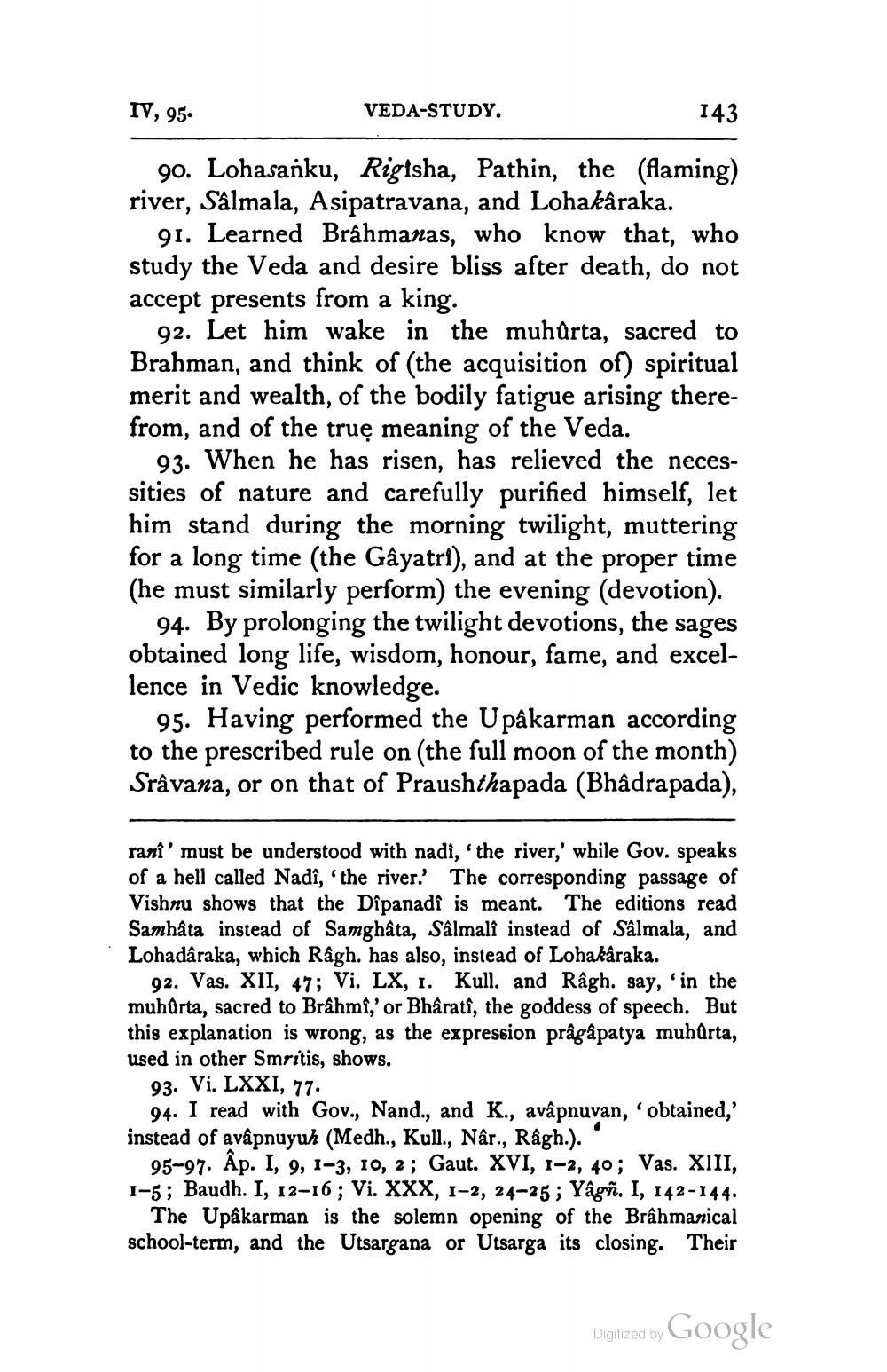________________
IV, 95.
VEDA-STUDY.
143
90. Lohasanku, Rigtsha, Pathin, the (flaming) river, Sálmala, Asipatravana, and Lohakâraka.
91. Learned Brahmanas, who know that, who study the Veda and desire bliss after death, do not accept presents from a king.
92. Let him wake in the muhûrta, sacred to Brahman, and think of the acquisition of) spiritual merit and wealth, of the bodily fatigue arising therefrom, and of the true meaning of the Veda.
93. When he has risen, has relieved the necessities of nature and carefully purified himself, let him stand during the morning twilight, muttering for a long time (the Gâyatrí), and at the proper time (he must similarly perform) the evening (devotion).
94. By prolonging the twilight devotions, the sages obtained long life, wisdom, honour, fame, and excellence in Vedic knowledge.
95. Having performed the Upâkarman according to the prescribed rule on (the full moon of the month) Srâvana, or on that of Praushthapada (Bhadrapada),
ranî' must be understood with nadi, the river,' while Gov. speaks of a hell called Nadî, 'the river.' The corresponding passage of Vishnu shows that the Dîpanadi is meant. The editions read Samhâta instead of Samghâta, Salmalî instead of Sâlmala, and Lohadaraka, which Ragh. has also, instead of Lohakaraka.
92. Vas. XII, 47; Vi. LX, 1. Kull, and Râgh. say, 'in the muhůrta, sacred to Brahmi,' or Bharati, the goddess of speech. But this explanation is wrong, as the expression prâgâpatya muhůrta, used in other Smritis, shows.
93. Vi. LXXI, 77.
94. I read with Gov., Nand., and K., avâpnuvan, 'obtained,' instead of avâpnuyuh (Medh., Kull., Nâr., Râgh.).
95-97. Âp. I, 9, 1-3, I5, 2; Gaut. XVI, I-2, 4o; Vas. XIII, 1-5; Baudh. I, 12-16; Vi. XXX, 1-2, 24-25; Yâgñ. I, 142-144.
The Upakarman is the solemn opening of the Brâhmanical school-term, and the Utsargana or Utsarga its closing. Their
Digitized by Google




